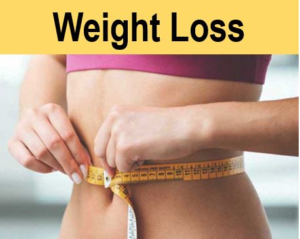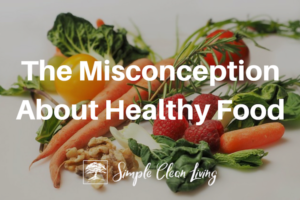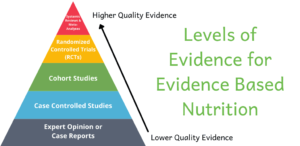Introduction
Dieting has become synonymous with weight loss and health improvement, but unfortunately, many myths and misconceptions surround this topic. From restrictive fad diets promising quick results to conflicting advice on what constitutes healthy eating, the landscape of dieting can be confusing and overwhelming. It’s essential to separate fact from fiction and adopt a sensible, evidence-based approach to nutrition.
Diet Myths vs. Weight Loss Facts

One of the most pervasive diet myths is the idea that the certain foods or food groups can magically melt away fat. In reality, weight loss is the complex process that depends on various factors such as the calorie intake, physical activity, and metabolic rate. While certain foods may offer nutritional benefits or support weight loss when to be consumed as part of a balanced diet, there are no miracle foods that can single-handedly lead to significant weight loss.
Additionally, the notion that cutting out entire food groups or following extreme dietary restrictions is necessary for weight loss is another common misconception. In fact, research has shown that sustainable weight loss is best achieved through moderation and balance, rather than deprivation or extreme measures. By focusing on whole, nutrient-dense foods and practicing portion control, individuals can achieve lasting results without resorting to drastic measures.
Healthy Eating Misconceptions

Another prevalent misconception is that healthy eating has to be bland, boring, or expensive. In reality, a nutritious diet can be flavorful, diverse, and affordable. By prioritizing whole, minimally processed foods such as fruits, vegetables, whole grains, lean proteins, and healthy fats, individuals can meet their nutritional needs while enjoying a wide variety of delicious meals.
Furthermore, the belief that certain foods are inherently “good” or “bad” can be lead to the feelings of guilt or shame around eating. It’s essential to adopt a non-restrictive mindset and practice mindful eating, where all foods can fit into a balanced diet in moderation. By focusing on the overall dietary patterns rather than individual food choices, individuals can cultivate a healthier relationship with food and body.
Debunking Diet Fads.

In recent years, countless diet fads and trends have emerged, promising rapid weight loss and the improved health. From juice cleanses and detox diets to ketogenic and paleo regimes, the sheer volume of conflicting advice can be overwhelming for consumers seeking guidance on nutrition. However, many of these diets lack scientific evidence to support their claims and may even pose risks to health in the long term.
For example, while low-carb diets like keto may result in initial weight loss due to the water loss and reduced calorie intake, they may also lead to nutrient deficiencies and the potential health issues over time. Similarly, juice cleanses and detox diets often lack essential nutrients and can disrupt the body’s natural detoxification processes. It’s essential to approach diet fads with skepticism and prioritize sustainable, evidence-based approaches to nutrition.
The Importance of Evidence-Based Nutrition

In an era of information overload, it’s more critical than ever to rely on evidence-based nutrition guidelines backed by scientific research. By consulting reputable sources such as registered dietitians, nutritionists, and government health agencies, individuals can access accurate, reliable information about dietary recommendations and healthy eating habits.
Furthermore, critical thinking and discernment are essential when evaluating nutrition-related claims and trends. Questioning the validity of sensationalized headlines or anecdotal success stories and seeking out peer-reviewed research and expert opinions can help separate fact from fiction in the realm of nutrition. Ultimately, prioritizing evidence-based nutrition can empower empowering individuals to make informed the decisions that promote their health and well-being.” well-being.
Conclusion
In conclusion, navigating the landscape of dieting requires critical thinking, discernment, and a commitment to evidence-based nutrition. By debunking common myths about dieting, dispelling misconceptions about healthy eating, and prioritizing science-backed recommendations, individuals can adopt sustainable, balanced approaches to nutrition that support long-term health and well-being.
FAQs
1.Are low-fat diets better for weight loss than low-carb diets?
– Both low-fat and the low-carb diets can be effective for the weight loss, depending on individual preferences and metabolic factors. The key is finding the sustainable approach that aligns with your lifestyle and dietary preferences.
2.Do detox diets really work to cleanse the body?
– There is limited scientific evidence to support the effectiveness of detox diets in removing toxins from the body. The body’s natural detoxification processes primarily involve the liver, kidneys, and other organs, which are supported by a balanced of diet rich in fruits, vegetables, and water.
3.Is it possible to lose weight without restricting certain foods or food groups?
– Yes, sustainable weight loss is achievable without eliminating specific foods or food groups. By focusing on portion control, moderation, and overall dietary patterns, individuals can achieve lasting results while enjoying a varied and balanced diet.
4.Are there any supplements that can aid in weight loss?
– While some supplements claim to promote weight loss, their efficacy and safety are often questionable. It’s essential to approach supplements with caution and consult a healthcare professional before of adding them to your regimen, as they may interact with medications or have adverse effects.
5.How can I differentiate between reliable nutrition information and pseudoscience?
– Look for information from reputable sources such as registered dietitians, nutritionists, and government health agencies. Be wary of sensationalized claims or anecdotal evidence and prioritize research-backed recommendations supported by peer-reviewed studies.

